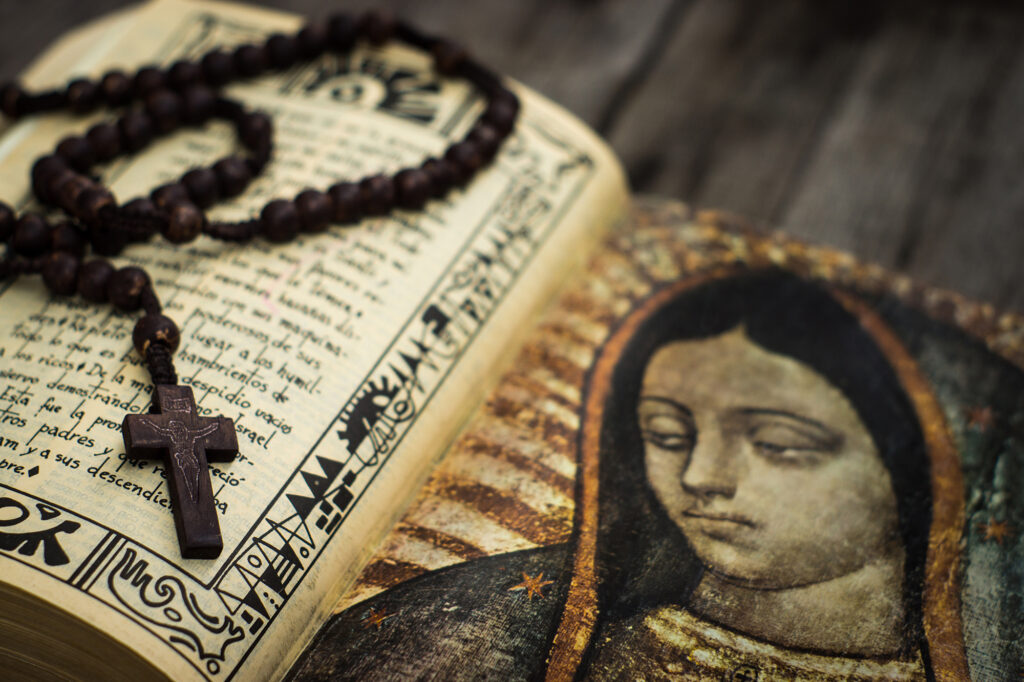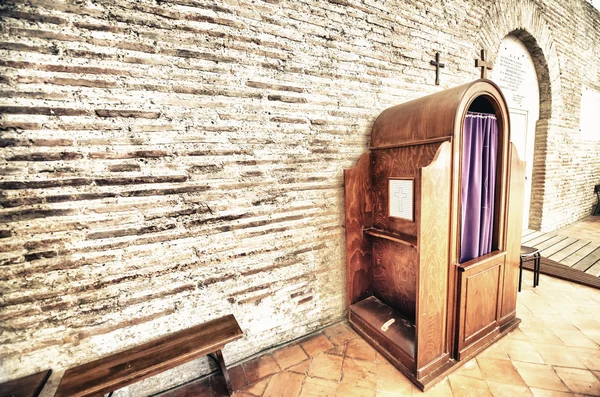Catholicism, a faith steeped in tradition, ritual, and a rich spiritual heritage that spans over two millennia, offers a profound sense of community and spiritual direction to its believers. If you’ve felt the call to explore this deep well of spiritual tradition and are considering becoming a Catholic, this guide will help you navigate this rewarding, yet complex, religious landscape.
Understanding Catholicism: Foundations of Faith
The first and foremost step towards becoming a Catholic is to understand the fundamental beliefs of the Church. Catholicism is based on the Holy Trinity, the seven sacraments, the Holy Bible, numerous traditions, and moral teachings that have been developed over the centuries.
Consider reading the Catechism of the Catholic Church—a comprehensive source of the Church’s teachings. You can also explore official resources available on the Vatican’s official website or the United States Conference of Catholic Bishops’ page. This initial step of learning is an essential prerequisite that will provide a solid foundation for your spiritual journey.
Click here for more great info, the St Marys of Huntly, IL website has lots of resources to get you familiar with some of the Catholic traditions and answers to your questions.
Experiencing the Mass: The Heart of Catholic Worship
Part of understanding Catholicism involves immersing yourself in its practices. Start by attending Mass at a local Catholic church. This communal worship service, rich with ritual, prayer, and scripture, is central to Catholic life. You’ll begin to familiarize yourself with the flow of the service, the prayers recited, and the sense of communal worship. As a newcomer, don’t feel pressured to participate fully—especially in the Eucharist (Holy Communion), which is reserved for baptized Catholics.
Connecting with a Priest: Guidance on Your Journey
When you feel ready, arrange a meeting with a priest to discuss your interest in joining the Church. A priest can provide you with personalized guidance, answer your questions, and provide information about the conversion process. Think of them as your spiritual mentor on this journey.
Participating in RCIA: Your Path to Initiation
The formal process for adult conversion in the Catholic Church is known as the Rite of Christian Initiation for Adults (RCIA). RCIA usually involves weekly meetings for catechesis—teaching of the faith—led by a priest or a trained layperson. This process, which can span from several months to over a year, culminates in the reception of the Sacraments of Initiation—Baptism, Confirmation, and the Eucharist—at the Easter Vigil Mass.
The Power of Prayer: Nurturing Your Spiritual Life
Prayer is the lifeblood of Catholic spiritual practice. As you embark on this journey, make time each day for personal prayer and reflection. You might pray traditional prayers like the Lord’s Prayer or the Hail Mary, or simply spend time in quiet reflection.
Building Community: Engaging with Parish Life
Catholicism is not just a set of beliefs, but a vibrant, global community. As you learn and grow, seek out ways to get involved in your local parish or Catholic community. This could involve joining a Bible study group, participating in volunteer opportunities, or attending church events.
Receiving the Sacraments of Initiation: Becoming a Catholic
After your period of instruction and when you’re ready, you’ll receive the Sacraments of Initiation. If you haven’t been baptized, you’ll be baptized into the Church. Then, you’ll be confirmed and receive the Eucharist. These rituals represent your official welcome into the Catholic community.
Lifelong Learning: Growing in Your Faith
Becoming a Catholic is not an endpoint but the beginning of a lifelong journey of faith. Continue to engage with your faith through regular Mass attendance, prayer, Bible reading, learning about the lives of the Saints, and active participation in church.
Catholicism is a rich and complex religion, with a deep tradition that spans thousands of years. Here are some steps that can guide you in becoming a Catholic.
- Research Catholic Beliefs: Begin by understanding the basic tenets of Catholicism, including the Holy Trinity, the sacraments, the Holy Bible, the traditions, and the church’s teachings on moral issues. Websites like the Vatican’s official page or the United States Conference of Catholic Bishops can provide official resources. Reading the Catechism of the Catholic Church would also be helpful.
- Attend Mass: Start attending Mass at a local Catholic church. This is a significant part of Catholic life, and it’s a good way to begin to understand the rituals, prayers, and community aspect of the religion. You don’t have to participate in everything at first, especially the Eucharist (Holy Communion), which is reserved for baptized Catholics.
- Speak with a Priest: Schedule a meeting with a priest to express your interest in becoming a Catholic. They can provide guidance, answer questions, and inform you about the process of conversion.
- Participate in RCIA: The Rite of Christian Initiation for Adults (RCIA) is the process by which adults convert to Catholicism. This usually involves weekly meetings where you learn more about the faith from a priest or a trained layperson. This process can take several months to over a year and culminates in receiving the Sacraments of Initiation (Baptism, Confirmation, and the Eucharist) usually at the Easter Vigil Mass.
- Prayer and Reflection: Prayer is a crucial part of Catholic life. Take time each day to pray and reflect on your journey. This could include prayers like the Lord’s Prayer, Hail Mary, or personal reflections.
- Get Involved in the Community: Joining Catholic groups or participating in church activities can help you understand the faith better and give you a sense of belonging. These could be bible study groups, volunteering opportunities, or other church events.
- Receiving the Sacraments of Initiation: If you haven’t been baptized yet, you will be baptized into the Catholic Church. You’ll also receive the sacraments of Confirmation and the Eucharist. These are significant rites in the Catholic Church that officially welcome you into the community.
- Continue to Learn and Grow in Your Faith: Becoming a Catholic is a lifelong journey. Continue to attend Mass, pray, read the Bible, learn about the Saints, and participate in the life of the Church.
Remember, everyone’s journey is unique, and there is no “right” way to explore your faith. Take your time, ask questions, and allow yourself to experience the journey at your own pace.
How useful was this post?
Click on a star to rate it!
Average rating / 5. Vote count:
No votes so far! Be the first to rate this post.
Author
-
Anthony Ernst is the Owner of ThreeSphere Websites, bringing over 16 years of experience in web development and digital strategy. Beyond the screen, He is a dedicated family man, a married father of five who thrives on balancing work, play, and personal growth. On Futura Feed, Anthony shares insights from his diverse passions, blending technology, strategy, and personal development.
View all posts Web Developer







